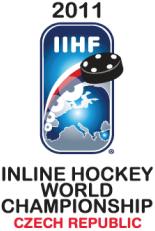PARDUBICE – German fans at the 2011 IIHF InLine Hockey World Championship call it the “Russian Unit”, following Scotty Bowman’s successful Russian Five in Detroit. The German roster features four players born in the Soviet Union.
The history of Germans in the area of the former Soviet Union dates back to medieval merchants, but the emigration of German specialists rose especially during the tsarist era of the Russian Empire in the 18th and 19th century, with the Volga Germans that used to live around the area of Engels in the Saratov Region.
Two million German people were living in the Soviet Union and the Volga Germans even had their own republic. But being suspected of collaboration with the Hitler regime during World War II, they were deported to labour camps in remote areas of the Kazakh and Siberian regions.
Many ethnic Germans were allowed to go back to Germany some decades later, and the so-called repatriates also left their marks in hockey.
While only few players with Germanic family names play in these areas – including Kazakh women’s national team veteran Yelena Shtelmaister – lots of players from the Soviet hockey schools tried their luck at different levels of the German hockey system since the ‘90s.
Most of them come from the two traditional hockey towns in Kazakhstan. They include goalies like Dimitri Pätzold, who hails from Ust-Kamenogorsk, or Dimitri Kotschnew from Karaganda, who have both represented Germany internationally after returning to the country of their ancestors.
The roster of the German national inline hockey team even includes four repatriates that formed the first unit at the start of the tournament. The unit has since broken up as the most famous player of the quartet, Eduard Lewandowski, had to leave for undisclosed reasons following the first game.
While the forward from the Russian city of Krasnoturinsk, who played in the KHL finals with Atlant Mytishi in spring, will surely be missed, three players hailing from Karaganda remain with the team.
Vitalij Aab, Boris Blank and Alexander Dück all left their hometown as teenagers to try their luck in Germany. Dück left earlier than the other two to play for junior teams in Schwenningen in the Black Forest, while Aab and Dück went to Northern Germany, playing in the second and third division for Wilhelmshaven before being discovered by top-league teams.
All three now play in the DEL and also had some experience with national ice hockey teams, but the way to fame was a long one after having grown up in a different society more than 4,000 kilometres away.
“In Kazakhstan and the Soviet Union I wasn’t made feel that I’m German, but it was different for my parents,” Blank remembers the stories he heard. “They were sent to Siberia and my grandpa died at 33. They were in a closed city and then later deported to Kazakhstan. They were often called Nazis by the Russian population, but luckily when I grew up it was different.”
Then the family moved to Wilhelmshaven in the ‘90s, same as his Karaganda teammate and good friend Aab, who continued to play together in their new city.
“I came to Germany without knowing a word of German,” Blank says. “I learnt a bit at school as a kid, but I wasn’t doing very well at school, so I had to learn everything in Germany.”
That was a long time ago. Meanwhile only a slight Russian accent reveals that he’s not of German mother tongue.
“I’ve been living there for 17 years now and I feel at home,” Blank says.
The 32-year-old forward has played 558 games in the top league DEL and has been with Krefeld Pinguine for six years. In the era of Hans Zach he even participated in three IIHF World Championships (2002-2004).
Forming a line of Russian speakers with his good old friend Aab was surely something special, although it just lasted for one game, but he’s not worried about the new situation either.
“We often have contact with people who came from Kazakhstan and Russia, but I don’t make a difference between people as long as they’re good,” he said.
Germany, a four-time bronze medallist in inline hockey, hasn’t had a good tournament so far and lost all games in the preliminary round.
Due to their placement the Germans got reigning champion USA in the quarter-finals, which proved to be a mission impossible that ended with a 16-1 hammering.
“We have to improve day by day,” Blank said. “It’s difficult because we didn’t have a preparation camp and the other teams are really strong.”
Only one players was used more often than the Karaganda connection: Thomas Greilinger, who staged a fabulous comeback in top-level ice hockey after a break between 2005 to 2008 (see
separate story).
Now the Germans have to fight for the ranking positions in the placement game against Slovenia before hosting the event next year in Ingolstadt.
MARTIN MERK







